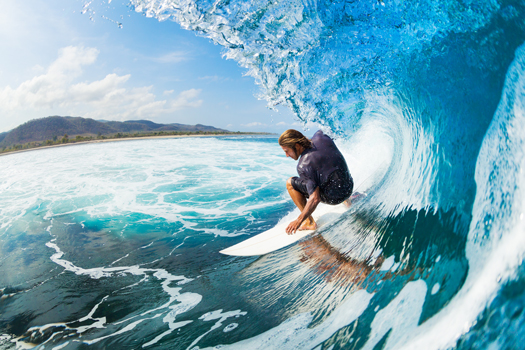
Lower back pain is one of the most common reasons people seek medical attention. That said, your odds of experiencing discomfort of this nature will ultimately depend on several factors. Your odds of experiencing this type of discomfort are affected by the activities you normally enjoy on a regular basis. If this includes playing sports, it's not out of the ordinary to experience lower back pain afterward. Below, we go over some of the reasons this may be the case.
The Nature of Your Preferred Sports
One of the reasons your lower back may hurt after sports is because of the nature of what you're playing or doing. Certain sports are more likely to contribute to lower back pain. According to Sports Health, these include:
• Gymnastics
• Weightlifting
• Diving
• Football and other direct contact sports
• Golf
These sports incorporate bending, twisting, lifting, and impact—all of which increase pressure on the spinal discs.
Overusing Spine-Supporting Muscles
Your lower back gets some help from the same supporting muscles needed to engage in various sports-related activities. If you play sports in an especially vigorous way, these soft tissues may become inflamed. This irritation and swelling can contribute to lower back pain in several ways. For instance, it may extend to the sciatic nerve that exits from your lower back, which could leave you feeling pain in and around your lower back area.
Lacking Proper Form & Technique
The way you move when playing sports can also determine whether or not you have lower back pain that develops or lingers afterward. This is more likely to be an issue if you're not paying careful attention to form and technique. With golf, for instance, not swinging your club correctly could result in excessively twisting or turning your trunk area, which can affect your lumbar spine.
Failing to Take Reasonable Precautions
With some sports, especially ones involving physical contact, it's important to know when to avoid certain actions or movements. It's equally essential to wear proper protective gear that absorbs blows, impacts, and falls. Also, choose padding and other types of protective gear that are the right size for your body, and make sure they’re correctly adjusted.
Having Existing Lower Spine Issues
Your lower back may also hurt after sports if you already have problems with your spine that could be aggravated by certain movements. One possibility is having a herniated disc (also commonly known as a "slipped disc" or “ruptured disc”) that occasionally irritates nearby nerves. If this applies to you, check with your doctor to determine what precautions you may need to take.
Not Fully Preparing when Not Playing
What you normally do when you’re not engaging in sports can also play a role in whether or not you experience lower back pain or discomfort after sports. If your eating and exercise habits aren't all that healthy or productive, your spine and its discs and other supporting parts may be more susceptible to injury and related issues. You're less likely to have serious issues with lower back pain after sports if you make an effort to:
• Maintain a healthy weight
• Get regular exercise
• Do a workout or exercise routine specific to your preferred sports
• Eat foods that tend to be good for the spine (e.g., green leafy veggies, lean proteins, low-fat dairy products, etc.)
• Stay sufficiently hydrated
If your back pain is severe and long-lasting, your doctor may recommend surgery to provide relief. For example, if you have a herniated disc, a discectomy may be the best option. Although this is generally a very successful procedure, patients with a large hole in the outer ring of the disc have a significantly higher risk of reherniation following surgery. Often, the surgeon won’t know the size of the hole until he or she begins surgery, and having a large hole in the outer ring of the disc more than doubles the risk of needing another operation. A new treatment, Barricaid, is designed to close this hole, and it’s been proven 95 percent effective. This treatment is done immediately following the discectomy—during the same operation—and doesn’t require any additional incisions or time in the hospital.
If you have any questions about the Barricaid treatment, ask your doctor or contact us at 844-288-7474.
For full benefit/risk information, please visit: https://www.barricaid.com/instructions.


Comments